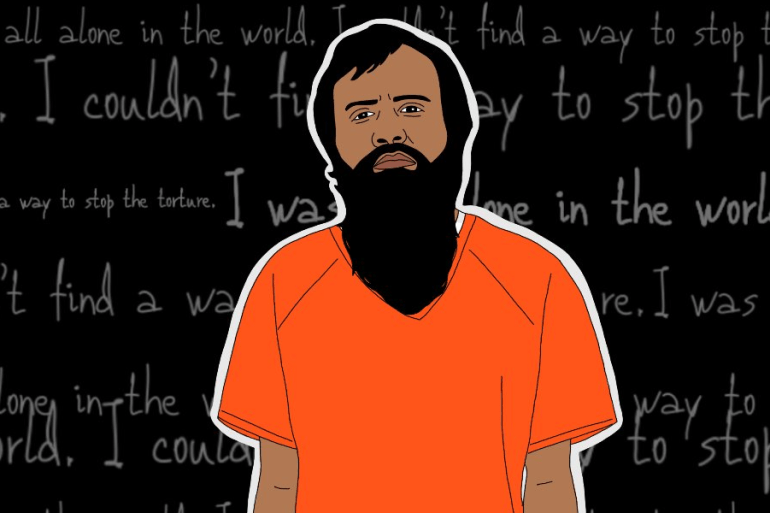Al-Qahtani must be released and Guantanamo closed
As law students working on Mohammed al-Qahtani’s case, we know his release is a question of humanity, not opinion.

“We tortured Qahtani.” As law students working on Mohammed al-Qahtani’s case, it remains shocking to us that more than 10 years after this damning admission by a senior US government official – the only one of its kind in the so-called “Global War on Terror” – Mohammed remains behind bars.
Our client languishes at the notorious prison that our government opened at Guantanamo Bay, Cuba 19 years ago. Mohammed has spent more than half his life there. We begin our legal careers with the unusual work of challenging imprisonment without trial by the United States. As our country awaits the Biden administration, we remember the Obama-Biden ticket’s unfulfilled 2008 promise to close the offshore prison. At long last, this promise must be honoured: Mohammed must be released, and Guantanamo closed.
Keep reading
list of 4 itemsCoronavirus brings new delays for Guantanamo detainees on trial
‘No one bothered’: Afghan mother waits for son held in Guantanamo
Stuck in Guantanamo for 12 years, Afghan inmate’s health at risk
Mohammed’s case is unusual because there is no dispute the US government mercilessly tortured him. But what is less well known is the fact that he has lived with mental health problems since childhood. At only eight years old, Mohammed was thrown from a car during an accident and suffered a traumatic brain injury causing severe cognitive decline. As a teenager, he began experiencing paranoia and auditory hallucinations, common symptoms of schizophrenia. In 2000, only a year and a half before his capture, he hurled himself into moving traffic in Mecca, resulting in hospitalisation for an acute psychotic break. The US government has yet to address whether it knew of Mohammed’s pre-existing mental health conditions at the time it tortured him.
For 50 days from November 2002 through January 2003, US military interrogators kept Mohammed in solitary as they beat him, forced him into painful “stress” positions, exposed him to extreme temperatures, ear-splitting music, and sensory deprivation, and terrorised him with dogs. They forcibly shaved his hair and beard. They woke him at 4am every day and questioned him until midnight. They forcibly administered fluids intravenously and refused to let him use the restroom until he urinated on himself. They made him dance. They made him pick up rubbish with his hands. When the torture brought Mohammed to the brink of cardiac arrest, the interrogators took him to the hospital and continued to interrogate him in the ambulance. Doctors watched to ensure Mohammed did not die so that the torture could continue.
In Mohammed’s own words: “I had no sense of time passing, no definition to mark it … I was all alone in the world. I couldn’t find a way to stop the torture.” Since his torture, Mohammed has exhibited severe signs of post-traumatic stress disorder.
We are young Millennials and student attorneys who have returned to these cruel facts over and over. None of us was older than 10 when the first group of men were forcibly brought to Guantanamo. When Mohammed was the age we are now, our own government was torturing him, all while he experienced severe mental illness. He now lives with worsening symptoms of PTSD, schizophrenia, and major depression, which cannot be treated while he remains at Guantanamo. Just like his torture, his continued incarceration is a stain on this country’s conscience.
In March 2020, a federal judge ordered the US military to abide by domestic law and create a panel of US and foreign doctors to examine Mohammed and determine whether he should be repatriated to Saudi Arabia for psychiatric care. Predictably, the government tried to appeal this order, but the appellate court dismissed that appeal, leaving the lower court’s order standing. Yet Mohammed remains imprisoned and the government has made no effort to facilitate the independent medical examination.
As Mohammed’s legal advocates, we reiterate our demand for his prompt release. The Biden administration could release Mohammed tomorrow if they so choose. At a minimum, the government should have him promptly examined and repatriated to Saudi Arabia, to receive the treatment his illness requires and be near his family, at long last. We have learned all too well in law school that litigation takes time, a commodity Mohammed is quickly running out of.
As young lawyers-in-training, we enter the profession with the painful knowledge that the law is used to lock away people like Mohammed, who are declared disposable in the name of national security. We refuse to accept the law’s limitations. For us, this case is morally simple: The US must release Mohammed and close Guantanamo, once and for all.
Former CLEAR Clinic student attorneys Sonya Levitova, Ayah Zaki and Joshua Asch are co-authors of this article.
The views expressed in this article are the authors’ own and do not necessarily reflect Al Jazeera’s editorial stance.